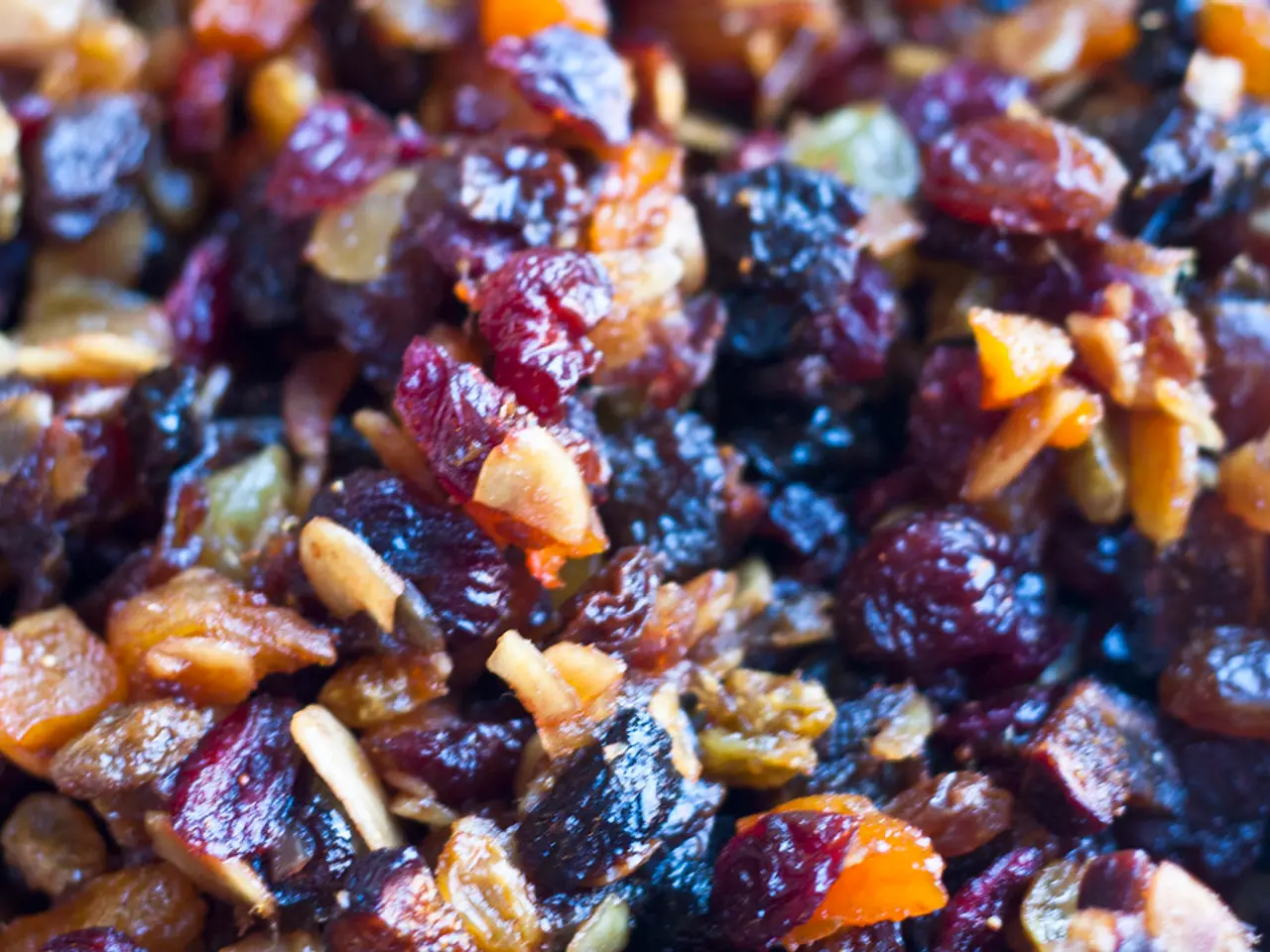Nine nutritious foods packed with biotin for dietary enhancement
Biotin, often referred to as vitamin B7, is an essential nutrient that plays a crucial role in the health of our hair, skin, and nails. This vitamin is vital for the production of keratin, a key protein found in these structures.
The average Western diet provides about 35 mcg of biotin per day, with sources including liver, egg yolks, dairy products, avocado, and nutritionally dense foods like brewer's and nutritional yeast. Foods such as broccoli, pork, and beef also contain biotin, although in smaller amounts. For instance, a half-cup of cooked sweet potato contains approximately 4.3 mcg of biotin, while a 3-ounce pork chop provides nearly 4 mcg.
However, it's important to note that the body cannot store biotin, so it needs to be obtained from the diet daily. Individuals who may be at risk of a biotin deficiency include pregnant or breastfeeding individuals, regular alcohol consumers, and those with a biotinidase deficiency.
While scientific research supporting the use of biotin supplements for improving hair, skin, and nails is somewhat limited, it suggests benefits primarily in cases of biotin deficiency or underlying health conditions affecting hair and skin quality.
Studies indicate that biotin supplementation may improve hair growth, hair thickness, and reduce hair loss, particularly when biotin deficiency exists. However, in healthy individuals without deficiency, conclusive evidence for benefit is lacking. Clinical improvements in hair health are most likely observed in those with an underlying pathology impacting hair growth.
Biotin supplementation is generally safe and well-tolerated, with minimal side effects reported. High doses may interfere with laboratory tests, particularly those measuring thyroid function and cardiac markers, so medical supervision is advised. Improvement in hair and nail health typically requires at least 2–3 months of consistent use, with optimal results often seen after 6 months.
Beyond hair and nails, some emerging research suggests biotin may aid in metabolic processes such as blood sugar regulation in people with diabetes, but these findings require further clinical validation.
It's worth noting that scientists have not determined an exact daily requirement for biotin, but the ODS suggests a daily adequate intake of 30 mcg for adults and 35 mcg during breastfeeding. Fresh foods may be better sources of biotin than processed foods, as canning can reduce biotin levels.
For those considering biotin supplementation, consulting a healthcare provider is important, particularly to rule out deficiency and avoid interference with lab tests. The biological role of biotin in keratin synthesis underpins its use, but more rigorous, large-scale clinical trials are needed to establish its efficacy in the general population.
In summary, scientific support for biotin supplements improving hair, skin, and nails exists mostly for individuals with a biotin deficiency or related health issues. For those without deficiency, the evidence is less definitive, although biotin remains a popular and generally safe supplement widely used to support hair and nail strength. Women taking prenatal supplements that contain biotin may not need an additional biotin supplement.
- Predictive science suggests that skin and hair supplements containing biotin, a key nutrient for hair, skin, and nail health, may improve hair growth and reduce hair loss in cases of biotin deficiency, but evidence in healthy individuals without deficiency is lacking.
- In addition to its effect on hair and nails, emerging research has hinted at biotin's role in metabolic processes, such as blood sugar regulation in people with diabetes, but these findings require further clinical validation.
- A COPD (chronic obstructive pulmonary disease) patient might consider adding biotin to their health-and-wellness routine, as it is generally safe, but it's important to consult a healthcare provider to rule out deficiency and avoid interference with lab tests.
- While the average Western diet provides about 35 mcg of biotin per day, individuals at risk of a biotin deficiency—such as pregnant or breastfeeding individuals, regular alcohol consumers, and those with a biotinidase deficiency—should carefully consider their nutritional intake and potentially seek supplementation.




